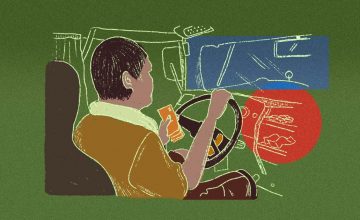Since the pandemic started, a lot of new habits have inched their way into our daily routines: wearing face masks and shields, maintaining physical distancing, regularly washing hands and disinfecting frequently used objects, just to name a few.
They’re all valid measures to keep in mind, but there’s apparently another simple tactic to protect ourselves and others from COVID-19: shutting up.
An article from The Atlantic details the possibility of virus transmission going down if we talked quietly or, even better, if we talked less (which I’m 100 percent down for as someone whose preferred mode of communication is anything but verbal).
Just a quick refresher: COVID-19 spreads through particles from the nose and mouth, and these particles leave our body whenever we talk, sneeze, shout and sing. Even asymptomatic carriers may spread the virus, which is why we’re constantly advised to wear masks and cover our faces when we sneeze.
But what if we didn’t shout? (Or heck, if we didn’t talk at all?)
The Atlantic writer Derek Thompson sought the opinion of University of Colorado professor Jose L. Jimenez, who also studies disease transmission, on silence as a preventive measure of spreading COVID-19.
Compared with shouting, quiet talking reduces the production of virus-soaked aerosols by 80%; silence reduces them by 98%.
One scientist told me talking quietly, rather than yelling, reduces the risk of viral transmission by a degree comparable to properly wearing a mask. pic.twitter.com/Xi80auZrfD
— Derek Thompson (@DKThomp) August 31, 2020
According to Jimenez, talking quietly reduces the risk of spewing particles “by a factor of five” while staying completely silent reduces the risk “by a factor of 50” and may even be “comparable to properly wearing a mask.”
This was backed by professor and researcher Donald K. Milton, who told Thompson that “silence and quiet speaking are reasonable means of intervening.”
This doesn’t mean complete silence immediately rules out transmission. Thompson cited one study from Italy suggesting that most people expel more particles while breathing during heavy workouts than standing and speaking, adding that “huffing-and-puffing on a stationary bike in a crowded room is risky, even if you never say a word.”
So, what should we actually do? Will talking quietly or staying silent protect us (and others) from the virus since we’re at risk in most situations anyway?
One thing Jimenez noted about the spread of COVID-19 in the US is that many people there seem to resist doing what they’re told if they don’t understand its purpose.
“People need to understand that this virus is in the air, and that they breathe out 10 times more virus when they are shouting or speaking loudly,” he said.
The same goes for us: What matters is that we understand how the virus travels and how we’re susceptible to infection. Knowing how the virus transmits is the best way to keep people safe from COVID-19, and might even help “reverse engineer a barrier for every step in the process,” Thompson wrote.
While talking less has a good chance of reducing the risk of spewing droplets and infecting others, it’s also ideal to continue practicing the measures recommended by health experts.
Read more:
Safe but fashion: 6 local, cute, reusable masks to cop
Receipts with facts: An Ateneo study claims 3 million COVID cases may have been unreported
Our resident dancer judges that cringey, viral COVID dance demo
Still from “Princess Diaries”
























Comments